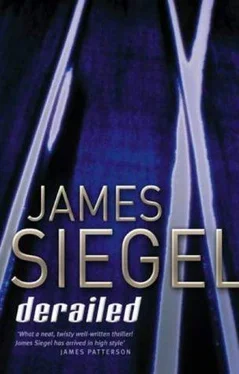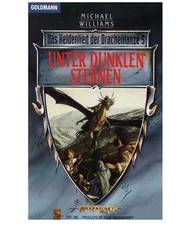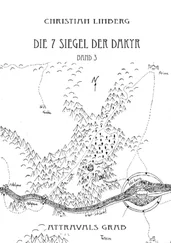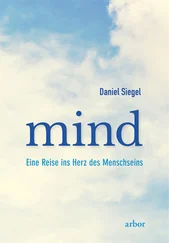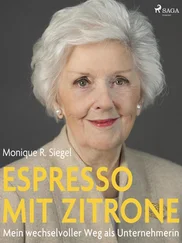Visibility was almost zero. But I could see Lucinda’s body not five feet from me. I could touch Vasquez. Firemen and policemen were running back and forth in a choking maelstrom of black smoke.
I got up. I began walking. I vanished in that maelstrom.
I walked quite a while. I was wondering if Deanna had been right all along, that things happened for a reason. I wasn’t sure now. People stared at me as if I’d just landed from another planet. But no one stopped me — no one asked me if I was hurt or needed a doctor or an ambulance. Maybe they were immune to this kind of thing now. I walked straight down Broadway. I thought my hair was singed — when I ran my hands through it, it crackled like static. I ended up hailing a taxicab somewhere near Central Park.
I went back to my apartment in Forest Hills. The taxi driver had the radio on. Someone was talking about the explosion. Possibly a gas leak, a woman was saying — she was interviewing a fire captain. It would be a while before they’d find evidence to the contrary. The taxi driver asked me if I was all right.
“Yes,” I said. “Couldn’t be better.”
When we got to Forest Hills, the street I lived on was deserted. Maybe everyone was glued to the news. No one saw me enter the building, go into my apartment, fall into a stupor.
I slept an entire day.
When I woke the next morning, I went into the bathroom and didn’t recognize myself. I was in blackface — I belonged in a minstrel show.
I turned on the news. Three talking heads were debating figures. What figures, exactly? It took me a while to figure it out. The number of dead — that’s what they were talking about. Somewhere around 100 was the consensus. On another channel they claimed it was 96, 150 on another. The hotel dead and the peripheral casualties in the four surrounding buildings. But who knew how many died, really? That’s what the talking heads said. The bodies were burned up, crushed, incinerated. It was impossible to tell, one man said, they might never know. If someone who was in the hotel showed up, they were alive — he said. If they didn’t they were dead. People had already begun scouring hospitals and Red Cross shelters, putting up pictures on walls and fences and street lamps — a hollow-eyed and desperate army of bereaved.
I watched for an entire day without moving.
I didn’t call anyone — I didn’t speak to anyone. I was more or less paralyzed. All that horror. I couldn’t move — I couldn’t eat. I couldn’t speak.
The illusion of invulnerability I used to carry around like a birthright — the one Vasquez and Lucinda had stripped me of — had now been taken from 143 others. No one was safe anymore. No one.
The rubble from the explosion was taken by truck to the city dump. To the dump in Staten Island. To the place you can get to by following the stench straight down Western Avenue.
To make room for the tons of debris, they first had to move other tons of debris. Move those piles of debris from one place to another. And amid the pile of twisted steel, crushed cardboard, tin cans, broken bones, rotten food, cracked brick, and human waste — they found a wasted human.
They finally found Winston.
This was all the police had been waiting for. A body. They had me on tape telling Winston what I wanted him to do, but they didn’t have Winston.
Now they did.
I discovered this when I finally called Deanna three days after I stumbled away from the blown-up buildings. From what looked like downtown Beirut. She was happy to hear from me.
“Thank God, Charles,” she said. “I thought you were dead. ”
FORTY-THREE
That’s when it first occurred to me.
When Deanna got on the phone and said, I thought you were dead.
Or maybe it wasn’t exactly then. Maybe it was later, after I’d told Deanna what I’d been up to — what had happened to me in the Fairfax Hotel — and she gasped and went silent and then told me the police had come to the house with a warrant for my arrest. Because they’d found Winston’s body in the Staten Island dump.
Or it might’ve been later that day, when a somber and pale-looking city spokeswoman read a list of the dead on a news program. The confirmed dead and the presumed dead — otherwise known as the still missing.
My name was on it.
It was kind of surreal, listening to myself be declared officially missing. It was like attending my own funeral — my very own memorial service. The city spokeswoman said this list was carefully compiled from the hotel’s computer hard drive, recovered in the rubble — people who were known to have been registered guests at the time of the explosion. And from belongings found here and there, scattered around the blast site and stored in the hotel safe. Briefcases, PalmPilots, engraved watches, and jewelry. My watch, for example, was missing. “To Charles Schine with all my love,” it said on the back. The spokeswoman explained they’d matched this list to the people who’d made it to emergency rooms and hospital beds.
I was picking up the phone to call someone — anyone — and explain that I wasn’t dead after all, that I was still here. I was getting dressed at the same time, because maybe a phone call wouldn’t be enough, it was possible I would have to show up and produce myself in the flesh. I was rummaging through my sock drawer, and I came across Winston’s wallet.
Which is when the idea really occurred to me.
When it changed from the ridiculous to the possible. From a wishful notion to an actual plan. I’d buried Winston’s wallet in my sock drawer and forgotten about it. But I remembered something Winston told me now.
The easiest thing to get—new identities, he'd said.
His wallet, for instance, had four of them. Driver’s licenses.
A Jonathan Thomas. A Brian McDermott. A Steven Aimett.
And a Lawrence Widdoes. The only one of the four who looked even remotely like me — younger, of course, but the same basic coloring.
I thought you were dead, Deanna said.
So did a few other people.
I’d checked into the Fairfax Hotel, but I’d never checked out. Or maybe I had, but only in the vernacular sense of the term. As in, Did you hear what happened to Charley? He, well, checked out. He died.
Which reminded me of one other popular saying.
I’d be better off dead. Yes, we’ve all heard that one, too. An expression we use in times of crisis, when things are absolutely hopeless and there seems to be no way out.
Unless there is. Unless you think that you’re good and trapped, but there is a way out after all.
Being dead.
Maybe that was the way out.
If I showed up, I’d be alive.
But what if I didn't?
FORTY-FOUR
I was standing on the corner of Crescent and Thirtieth Avenue.
In front of a place called the Crystal Night Club. It didn’t look like a nightclub. It was just an ex-VFW lodge — the pale imprint of “VFW Lodge 54” still lingered on the brick facing. But it was past midnight, and I could hear music inside. A Latin-looking man was throwing up on the sidewalk.
When I walked in, I was immediately aware that I wasn’t exactly in my element.
Remember that scene from Star Wars where the hero strolls into that alien bar? I felt like that. Only these aliens were of the terrestrial variety — the kind you see on the evening news when the INS conducts its periodic roundups on the border. The kind you see on any lawn crew on Long Island. If I hopped a plane to Santo Domingo and stepped off onto the runway and into the nearest bar, it might look like this.
I was pretty sure I was the only white American in the place. Possibly the only legal American, too.
Читать дальше
